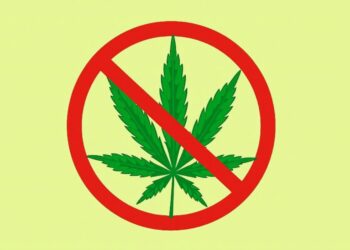Recently, researchers at the University of New Mexico published a study in Science Daily that found the medicinal benefits of THC are proving more therapeutic than originally thought. This might come as a surprise to many who have bought into the current craze of using CBD or cannabidiol to treat pain and inflammation. The UNM study found that, “tetrahydrocannabinol or “THC,” showed the strongest correlation with therapeutic relief and that there is far less evidence for the benefits of relying on the more socially acceptable chemical, cannabidiol.”
The study’s findings were based on the largest database of real-time measurements of the effects of cannabis in the United States through the ReleafApp. ReleafApp is a mobile application that helps patients better understand what forms and strains of cannabis best treat their ailments.
Understanding the Differences Between CBD and THC
As CBD’s popularity in mainstream culture grows exponentially, it is important we understand its supposed benefits. A CBD-based epilepsy medication was recently approved by the FDA for treatment in the United States and the new Farm Bill has paved the way for national cannabidiol legalization. While it is clear that CBD has the ability to treat a number of conditions it is important not to overstate its ability to treat all conditions. It is also important that the cannabis community does not disregard THC and its therapeutic qualities.
Jacob Miguel Vigil, associate professor in the UNM Department of Psychology stated, “Despite the conventional wisdom, that only CBD has medical benefits while THC merely makes one high, our results suggest that THC may be more important than CBD in generating therapeutic benefits. In our study, CBD appears to have little effect at all, while THC generates measurable improvements in symptom relief.”
It should come as no surprise that THC consumption has such a major impact on therapeutic relief. THC has been shown for years to help patients suffering from a number of conditions. Studies have shown that a combination of THC and CBD at a 1:1 ratio can actually help to trigger the death of melanoma cells, leading to a reduction in the size and severity of the skin cancer. Cannabis and THC specifically have also been shown to aid in appetite retention for people with HIV/AIDS or chemotherapy patients. THC has even been found to stimulate the removal of toxic plaque in the brain that is a common feature of Alzheimer’s disease. The evidence suggesting that THC is more than just a high-inducing compound is extensive. The medicinal benefits of THC are hard to refute especially based on the anecdotal evidence from patients provided by the ReleafApp.
The Ramifications of the University of New Mexico Study
If nothing else, the UNM study “pumps the brakes” on the trend of using CBD over THC that is sweeping much of the United States. Though there are benefits to using CBD, there are also measurable benefits to using THC as a medicine. It is important that physicians and cannabis industry professionals do not discount the therapeutic effects of THC solely because of its psychoactive properties.
As research like the University of New Mexico and ReleafApp study continues to be conducted and published, the general public will gain a more detailed knowledge of the risks and benefits of each cannabis’ many beneficial compounds. It is this detailed knowledge that will allow physicians and patients to choose the safest and most effective forms of cannabis to treat any number of conditions of varying severity.

Lane is based in Southern California and is a content curator for Medical Marijuana 411. He spends his free time playing guitar and walking on the beach. He focuses his research into finding informative stories that can help medical marijuana patients better understand their diverse medicine.












